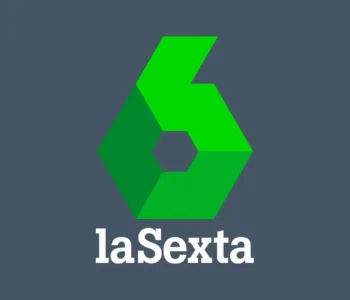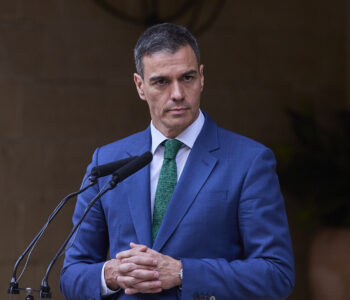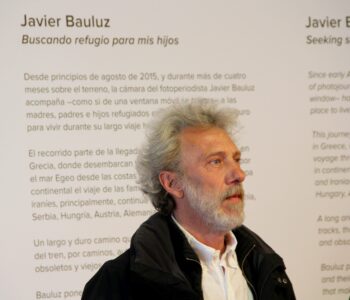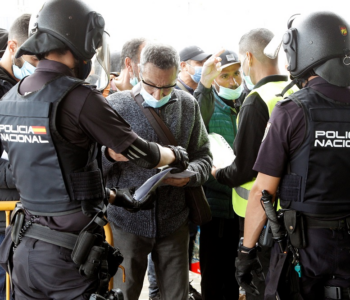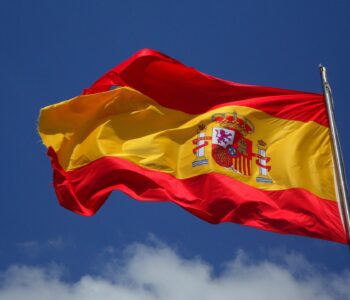In a guest article for IPI, the Spanish free expression organization Plataforma por la Libertad de Información (Platform for Freedom of Information, PLI) summarizes key trends in press freedom in Spain in 2021. At the top of the list: the country’s ‘gag law’ continues to be applied against journalists, even as lawmakers mull a partial repeal of the widely criticized measure.
In a year that witnessed a record number of fines under the controversial Law on the Protection of Public Safety (known as the “gag law” due its negative impact on free expression), the Spanish Parliament finally took steps to approve a fundamental reform of the law. It is hoped that in the first half of 2022 the provisions most detrimental to press freedom and the right to protest will be repealed.
PLI has reacted cautiously to the agreement on this partial repeal out of fear that some of the most dangerous clauses with respect to freedom of the press and free expression may nevertheless be maintained.
The Law on the Protection of Public Safety has been criticized since its approval in 2015 by PLI and by international groups such as IPI as well as by organizations such as the OSCE, the Council of Europe, and the U.N. Human Rights Committee for its generic provisions that allow for the law to be arbitrarily applied by the police. It has since been used in Spain against activists and journalists, especially those covering protests and demonstrations.
According to the most recent available statistics, fines for disobeying or resisting authority or failing to identify oneself (Article 36.03 of the law) grew 20-fold between 2019 and 2020, from 12,645 to 243,001. This article is among those most frequently applied against journalists (especially photojournalists), and has a clear negative impact on press freedom, as PLI has reported.
On the other hand, there were only 50 sanctions in 2020 (the most recent year for which figures are available) for the “unauthorized use of images of police in the exercise of their function” (Article 36.23) – though this nevertheless represented a 30 percent increase compared to 2019. In December 2020, the Spanish Constitutional Court found this article to be unconstitutional and eliminated it. However, this nullification has not led to greater freedom for journalists during the past year, who continue to be fined under Article 36.03. In fact, we started 2022 with the case of Catalan photojournalist Mireia Comas, who was fined for refusing to delete photographs after she was ordered to do so by a police officer.
Another of the law’s provisions applied against journalists is Article 37.04 on displaying lack of respect to the police. There were 14,782 fines under this provision in 2020 amounting to a total of 2,384,693 euros.
Last year, once again, it was photojournalists and journalists who cover protests that suffered the biggest blows. Blows in the literal sense, like the police violence that Guillermo Martínez reported experiencing (he was later investigated for providing false testimony, despite presenting a medical report and video evidence supporting his account), and blows in the form of fines. The chilling effect from these types of measures limits the ability of journalists to do their jobs freely.
One of the most prominent cases is that of El País photojournalist Albert García, who at one point faced a prison sentence. Later, prosecutors withdrew that demand but maintained a fine for resisting authority. In November, we got the news that García had finally been acquitted.
Safety of Spanish journalists
In April 2021, two Spanish journalists lost their lives while doing their job: David Beriain and Roberto Fraile were murdered in Burkina Faso. Spanish foreign correspondents also faced difficulties reporting last year from Cuba and Gaza.
Inside Spain, the blot of online harassment and attacks on female journalists on social media continues to be one of the biggest concerns for journalists, women, and organizations that defend freedom of expression. Ana Pastor, Ángels Barceló and Anna Bosch are just three name on a list that grows year after year. María Tikas is another journalist who was forced to live this terrible experience last year.
But journalists weren’t much safer inside the newsroom: Alicia Gutiérrez and news site Infolibre were charged with the revelation of secrets.
Elsewhere, the media outlets El Confidencial and Cuarto Poder reported that the Spanish electricity company Iberdrola withdrew advertising from the newspapers after they published information about it.
PLI also gave its support to Crónica Global in a case of the right to be forgotten and to various independent media that suffered cyberattacks that left them offline for several days.
Freedom of expression
Regarding freedom of expression and the persecution of artistic expression, a woman was fined for participating in a 2013 procession that featured a plastic vagina.
Another prominent case was that of singer Pablo Hasel, who remains in prison after being sentenced to nine months on charges of glorifying terrorism and insulting the crown and state institutions for his song lyrics and messages on Twitter in which he attacks the monarchy and the police.
He wasn’t the only singer who faced censorship. The municipality of Toledo yielded to the pressure of the far-right party Vox and removed a concert poster of the singer Zahara dressed as the Virgin Mary. The artist Pamela Palenciano faced another year of criticism, insults, and threats for her theatre monologue “It’s not only the blows that hurt” (No solo duelen los golpes).
There was also a serious case of censorship in which a judge in Castellón ordered the removal from schools of books with homosexual content.
Finally, a joke in poor taste led to well-known comedian David Suárez facing court for an alleged hate crime.
Positive news
In positive news, the family of journalist José Couso, killed in Baghdad in 2003, won a court victory and will finally receive compensation.
It’s also worth mentioning the consolidation of fact-checking media in Spain, which play an essential role in the fight against disinformation. This includes both dedicated ones (such as Maldita.es or Newtral) as well as those initiated by existing media themselves such as “EFE Verifica” or “Verifica RTVE”.
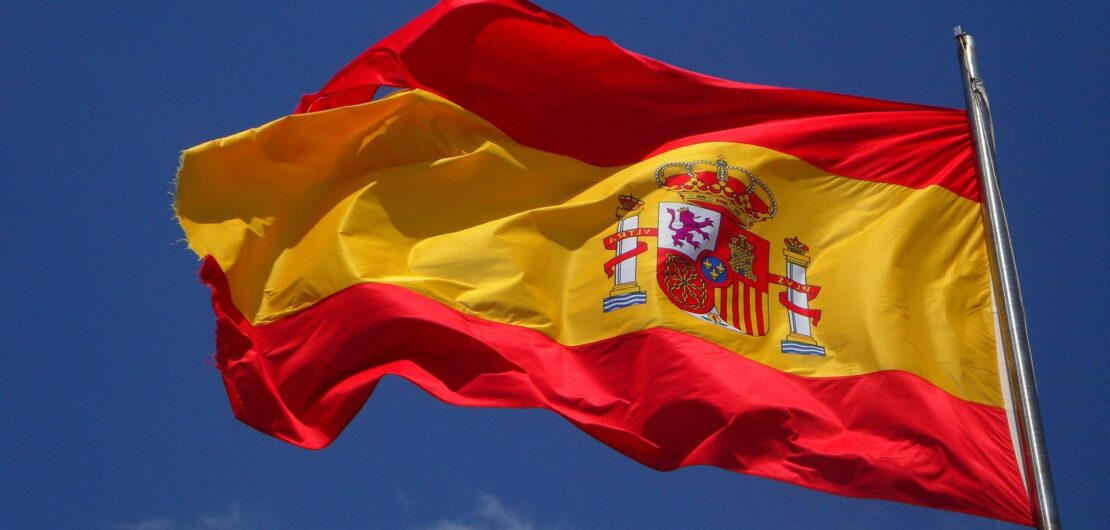 Library
Library

